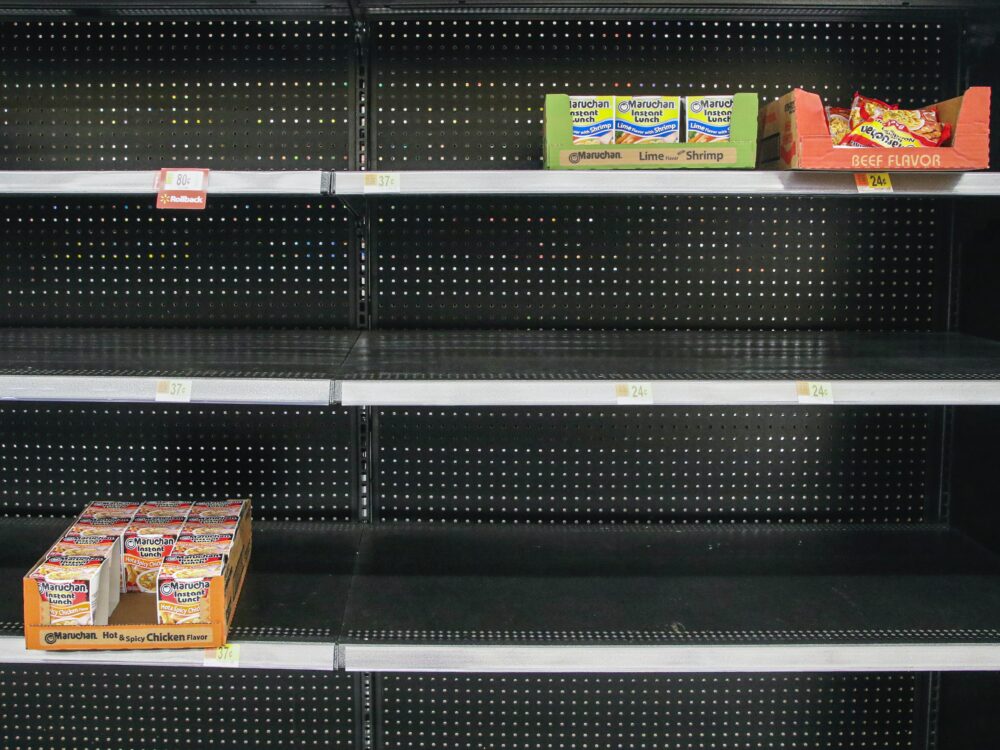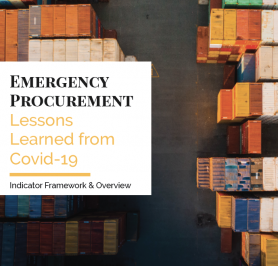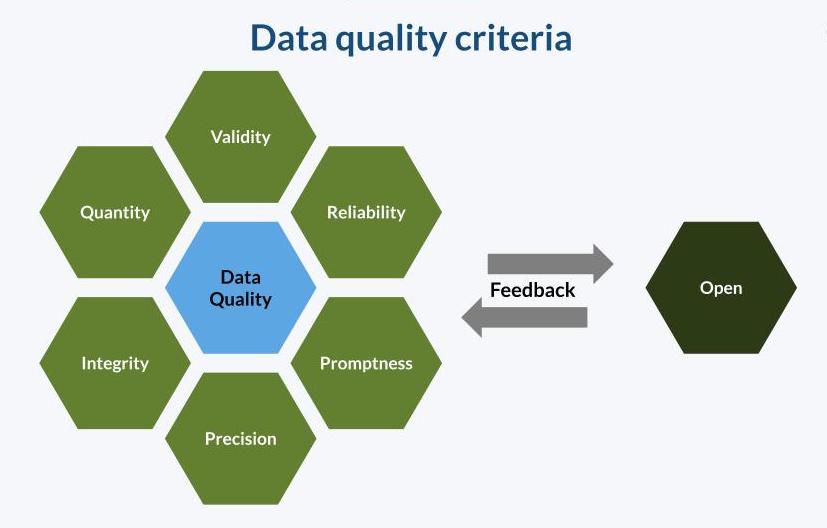Procurement Data and COVID-19: Buying Smarter in a Crisis
This post is the second in a 3-part blog series focused on DG’s collaboration with the Global Digital Marketplace Programme. Read part one “Resilience by eDesign: Digital Emergency Procurement” here, and stay tuned for Blog 3 in which we’ll discuss building procurement back, better, after Covid-19.
Achieving resilient public procurement goes beyond digitization and automation: data generated through these processes must also be used by government to make smarter decisions – particularly during crisis – and by civil society to hold government accountable for those decisions. With citizens’ lives on the line and government spending at record highs, ensuring accountability to citizens is imperative to maintaining trust and effectively managing emergency response. Open procurement data can help civil society groups detect corruption and monitor the effectiveness of service delivery.
For example, In a bid to expedite PPE procurements and ensure timely availability of critical supplies, many countries moved to direct purchasing avenues that differ from traditional procurement. In some cases, “speed” has led to identified cases of corruption. In South Africa, this led to the government reverting back to its old procurement processes, and taking further steps to curb corruption and rebuild trust. These steps included publishing the identities of all winners of PPE contracts, rationale for selection, and names of losing bidders; the government also plans to publish the shareholder names of winning bidders.
The nature of Covid-19 requires rapid and informed resource allocation. Procurement data can help governments achieve this goal through understanding what priorities are; setting expectations for how much should be spent to achieve priorities; and ensuring suppliers are credible and can deliver.
First: knowing what and who to prioritize enables governments to focus scarce resources on purchasing the most critical items, and delivering them to communities most at risk.
Data from healthcare providers, sub-national and national procurement entities should be aggregated to understand needs and further inform budgeting. Publishing budget information and engaging with civil society can help authorities conduct spot-checks and ensure that funding and services are reaching intended beneficiaries.
Second: to curb price gouging, governments should publish up-to-date price lists for reference and use by all public procuring entities.
For example, as demand for personal protective equipment (PPE) soared in the early days of the crisis, so did PPE prices. Intermediary purchasers also flooded the market, looking to skim off profits by connecting desperate buyers with suppliers. Publishing information on prices, quantities of PPE distributed and engaging with civil society encourage citizens and procurement officers alike to monitor corruption risks.
Third: leveraging market intelligence – using data from existing procurement systems (such as IFMIS) and investing in new data sources – can speed up due diligence processes.
In many countries, procurement systems collect supplier data and efforts can be made to enhance this data to include financial solvency, sector qualifications, beneficial ownership information, and supplier performance evaluation(s). On its own, beneficial ownership data can enable governments to quickly perform minimal standards of due diligence on companies they are buying goods and services from. As well as reducing the immediate risk of corruption, beneficial ownership data provides a valuable trail for future audit.
Fourth: as mentioned throughout, publishing procurement data equips civil society and citizens with the information needed to help combat corruption.
For example, identifying and reporting fraudulent applications for relief funding; monitoring the use (or misuse) of emergency response funds; and reporting counterfeits, frauds, and scams. To enhance citizen oversight, the Government of Paraguay launched a mobile app that notifies users about everything the state procures during the Covid-19 emergency, from tender through award. In Makueni County, Kenya, Development Gateway is supporting the county government in enhancing the Makueni Open Contracting Portal (that publishes data in OCDS) to include Covid-19 procurement data. The County plans to tag all Covid-19 tender data in the system track and analyze this data to inform government decisions, and involve civil society and communities in the improvement of emergency procurement processes.
 ➙ track supplies needed against supplies procured; ➙ track supplies needed against supplies procured;➙ pool purchase orders across government administrations; ➙ identify and select suppliers quickly; ➙ extract contract data for market intelligence; ➙ open data for public oversight and transparency; ➙ protect existing suppliers and long-term economic sustainability. |
Finally: while resources to build complex procurement data management systems may be difficult to mobilize, alternative data collection mechanisms can achieve much the same effect.
For example, standardized Excel templates or web forms that can be used to aggregate data from all relevant procurement entities. If open budget portals or websites do not exist, other tools and resources such as the Open Fiscal Data Package standardize the structure and the content of budget data so as to ensure data quality.
Another valuable resource for understanding how to collect and publish Covid-19 data is the Open Contracting Partnership’s guide to Covid-19 procurement data collection, publication, and visualization.
Related Posts

Building Procurement Back, Better
As governments look to “build back better,” we can expect an influx of government spending to stimulate the economy, and a shift in priority goods and services to purchase. While the world transitions from emergency response to recovery, governments’ focus will shift from using technology to procure other products, to procuring technology products themselves.

Resilience by eDesign: Digital Emergency Procurement
In a global emergency, public spending helps acquire materials to respond to the crisis, and stimulates the economy to assist with post-crisis recovery. In recent months, DG set out to understand what public procurement policies, contracting mechanisms, and data and digital capabilities were required to procure a rapid and effective emergency response.

When Covid-19 Confirms the Need for Open Contracting in Senegal
Each year, governments spend trillions of dollars through public procurement of goods and services – without a focus on accountability, much can be lost through waste or corruption. Today, more than ever, transparency in public procurement and Open Contracting is needed in Senegal and around the world as governments respond to and recover from the Covid-19 pandemic.